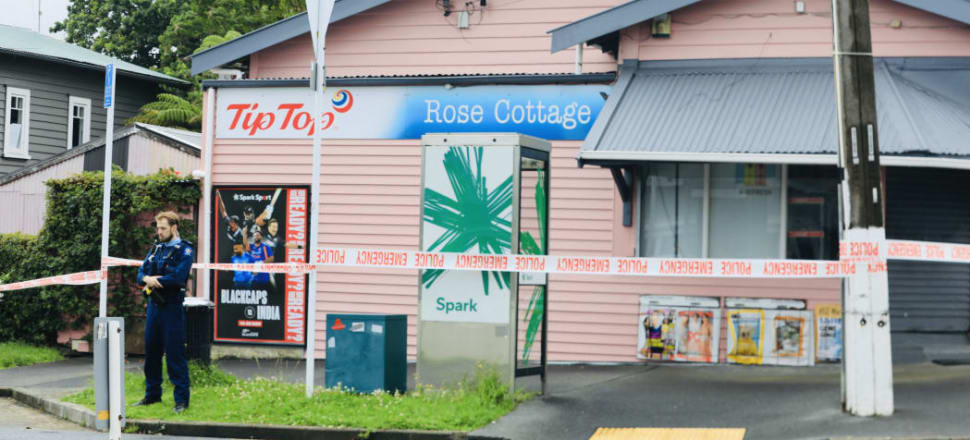
Every decade a minister of justice tries to understand the roots of crime in New Zealand, and every decade we keep getting nowhere. Lianne Dalziel asks where we're going wrong.
Opinion: It would be impossible to ignore the media focus on crime and calls for greater action after ram raids and attacks on small businesses. People are fearful of what they may have to confront in their shop. It is no wonder they want something done.
But these calls to action are no different than they were when I was first elected to Parliament just over 30 years ago.
And it seems every decade or so a minister of justice takes on the challenge of seeking to understand and address the underlying drivers of crime, knowing full well prisons are not the answer.
READ MORE:
* Four alternatives to ‘tough on crime’
* Why 10-year-olds shouldn’t be criminals
But then something always happens, a terrible crime that dominates the headlines, and all of a sudden, anything that doesn’t look tough on crime is out the window.
In the 1980s, the government attempted to develop an evidence base for what has been a significant public policy issue for decades.
There were two Roper Reports – one the Ministerial Committee of Inquiry into Violence and the other into Prisons - both chaired by the late Sir Clinton Roper.
In the former report, Roper told us we had the community we deserved. He listed a number of factors: rampant domestic violence; the macho image encouraged in advertising to the detriment of women; the acceptance of violence in sport; the normalisation of pornography; increased racism, illiteracy and lack of parenting skills. He also highlighted economic inequality and the stresses and frustrations that arose from that.
This ‘unpalatable truth’ was how he described our collective responsibility with words that are as true today as they were then:
“No one can afford to be complacent about the problem. Violence occurs by acts of commission and omission, and we are all responsible.”
This was a long time before social media, and of course the evidence-free zone that dominates political discourse on such issues, which has always been driven off slogans such as "three strikes, you’re out”, “truth in sentencing” and “life should mean life”. Slogans make great headlines, but they don’t solve problems.
When we consider the underlying personal problems or the undiagnosed or untreated conditions - drug and alcohol addiction, childhood abuse, learning disabilities, brain injury, mental illness, personality disorder – that we find in abundance in our prisons and institutions, we can see there are no simplistic solutions.
Then there are the children ‘incubated in terror’ as one judge described the reality of many who end up in our prisons … if they survive.
Prison itself is not the solution for these issues. The second Roper Report, Te Ara Hou: The New Way, highlighted our high recidivism rate as an indication of the failure to deter or rehabilitate.
Roper’s report highlighted that prison doesn’t confront the offender with their crime, nor the suffering they have caused the victims, their families and the communities shaken by what has occurred. ‘I’ve done my time’ is self-serving and can deny the victims of their crime the ability to move on in their lives.
I remember being told this story years ago: A woman approached the prison to ask if she could meet the two men who raped her because they were soon to be released and would be returning to the area where she still lived. They had always maintained their innocence and the town remained divided into those who believed her and those who believed them.
The prison was reluctant but finally agreed. She confronted them with the fact that they knew they had committed the crime and that they had served their time. Maintaining their innocence was only damaging to her now and hadn’t they done enough to her already? All she wanted was for them to admit their crime – which they did.
She left that prison with her personal integrity restored, something that they had robbed her of at the same time as they denied the rape.
This is a powerful example of courage and something that has always driven my passion for seeing a justice system capable of producing real justice.
What would the chances be of that happening now?
Probably no better than it was when we were coming into office in 1999 when the Withers petition received over 90 percent support in a referendum.
Restorative justice doesn’t spark quite the same headlines as the Sensible Sentencing Trust was able to generate.
There were a number of high-profile crimes during our time in office, and without going into them, any ideas of genuine reform were simply not able to be pursued.
The national government also kicked off a review of what the minister called the drivers of crime. Again, this was stymied by another tragic murder that dominated the headlines.
And Andrew Little when he was minister of justice looked set to be the reforming minister who was going to be able to deliver, through Turuki! Turuki!, the report of Te Uepū Hāpai i te Ora – Safe and Effective Justice Advisory Group.
I suspect its first recommendation being the establishment of a cross-party parliamentary accord for transformative justice was a bridge too far.
Sadly, the cycle will continue to repeat.







